
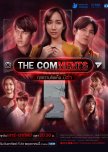
Both projects are the result of a collaboration between the department Thai Media Fund and a media company (Hub Ho Hin Bangkok/GMMTV), which was in charge of developing a story around cyberbullying and social media to raise awareness about their problems.
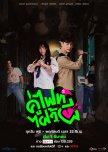
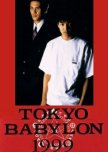
First, to clarify I'll be comparing Let's Fight Ghost with Tokyo Babylon (manga) by CLAMP and its spin-off/live action Tokyo Babylon 1999 because some things what I will point are mostly present on the comic, so I highly recommend reading it!!
So, what is similar? To start, all the issue about doing exorcism. TB's main character is an onmyoji (basically a Japanese medium) who is called/contracted to get rid of spirits, just like in the Thai series.
As in the series, both tries to show us the past of each ghost, the reason behind their death, why they cannot get reincarnated and so on. In the case of Let's Fight Ghost, it is pure comedy basically but in the manga, even if there are touches of humour, it's more tragedy and social commentary.
Another important point, the big parallelism between Dr. Jade and Seishiro Sakurazuka is incredible, I was not expecting that at all. To avoid spoilers, I will only say both are apparently perfect and kind vets who indeed are not what they look being and are related to magical/paranormal stuff. I wonder if there was some kind of inspiration, I'm really speechless.
So, what is similar? To start, all the issue about doing exorcism. TB's main character is an onmyoji (basically a Japanese medium) who is called/contracted to get rid of spirits, just like in the Thai series.
As in the series, both tries to show us the past of each ghost, the reason behind their death, why they cannot get reincarnated and so on. In the case of Let's Fight Ghost, it is pure comedy basically but in the manga, even if there are touches of humour, it's more tragedy and social commentary.
Another important point, the big parallelism between Dr. Jade and Seishiro Sakurazuka is incredible, I was not expecting that at all. To avoid spoilers, I will only say both are apparently perfect and kind vets who indeed are not what they look being and are related to magical/paranormal stuff. I wonder if there was some kind of inspiration, I'm really speechless.
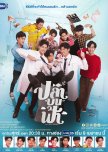
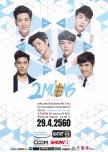
In some way Fish Upon the Sky remembered me to 2moons.
In 2moons, a nerd male lead who has had a long time crush and, when he starts university, changes his looks (removing the glasses basically) trying that his crush loved him back. The point is the main lead always had someone who likes him without him knowing that.
In Fish Upon the Sky, the plot goes pretty similar. But I think it will be retracted differently. Also, Fish is superior in terms of production and cinematography.
In 2moons, a nerd male lead who has had a long time crush and, when he starts university, changes his looks (removing the glasses basically) trying that his crush loved him back. The point is the main lead always had someone who likes him without him knowing that.
In Fish Upon the Sky, the plot goes pretty similar. But I think it will be retracted differently. Also, Fish is superior in terms of production and cinematography.
Both are made by the same screenwriters & directors: Pun Homchuen and Onusa Donsawai.
In both, film or series, they want to show the bad side of known figures who people worship like (Internet) idols. Also, the use of violence and abuse is high, almost reaching gore.
PLUS: Best Nathasit had an important role in both productions.
In both, film or series, they want to show the bad side of known figures who people worship like (Internet) idols. Also, the use of violence and abuse is high, almost reaching gore.
PLUS: Best Nathasit had an important role in both productions.


Beside of both talking about high-school students and their relationships and friendships, I find a parallelism between two characters: Win (Hormones) and Tee (Grean Fictions).
They both hurt their crushes' feelings unintentionally, what made them carry a guilty feeling through all the series (Hormones, in Season 2 concretely) and film. That blame is a heavy weight for them and caused their character development.
They both hurt their crushes' feelings unintentionally, what made them carry a guilty feeling through all the series (Hormones, in Season 2 concretely) and film. That blame is a heavy weight for them and caused their character development.
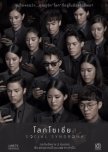
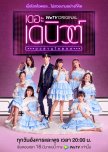
Social Syndrome's episode 1, "The Lucky One" tells about an idol and her fanboy. In some ways, the story critics the falseness behind the Industry and the way which fans actually idolize to "fake people".
All of that is dealt with again in The Debut, but much more extensively.
All of that is dealt with again in The Debut, but much more extensively.
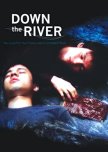
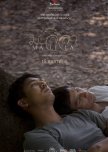
Definitely two pieces of art made by the same person, even when both are 13 years apart.
Anucha Boonyawatana's debut, "Down the River", settled many of the elements and recurrent topics that she has been touching since then: Buddhist philosophy, love (specially since a LGBTQ+ perspective) and Thai floral art. All these themes are touched again in "Malila: The Farewell Flower".
Anucha Boonyawatana's debut, "Down the River", settled many of the elements and recurrent topics that she has been touching since then: Buddhist philosophy, love (specially since a LGBTQ+ perspective) and Thai floral art. All these themes are touched again in "Malila: The Farewell Flower".


Both series resemble in some aspects: First at all, their humour is based the most time in exaggerated actions and hilarious elements.
Also, Pan and Soda, The Shipper's two fujoshi girls, enjoy writing yaoi fanfics about their male classmates. In the case of Lovely Writer, the main protagonist has to write a new BL novel through clenched teeth.
Both series use those plot proposals to criticize and parodize shippers/BL fans or, in the case of Lovely Writer, the BL industry in overall.
Also, Pan and Soda, The Shipper's two fujoshi girls, enjoy writing yaoi fanfics about their male classmates. In the case of Lovely Writer, the main protagonist has to write a new BL novel through clenched teeth.
Both series use those plot proposals to criticize and parodize shippers/BL fans or, in the case of Lovely Writer, the BL industry in overall.

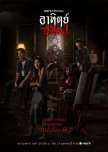
Both productions tell horror and psychological stories. Their most resemblance is in the last story of After Dark: "Into the hole", that is in fact a tribute to Audition.

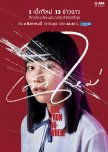
I find some similarities between both series, although the projects' proposals are different:
- Both tell a different story per episode, but in After Dark are connected and in GFN not (just the constant proposal of Nanno being the new classmate).
- Both are open to show violence, blood or sexual content.
- The series uses supernatural recourses. AD is into demons, ghost and witchcraft stuff, while GFN is more fantasy and dystopia.
- The protagonists of each story are grey characters, with a dark side and impulses.
- There is a character that remains in the background of all stories, Nanno and Dao (But Dao doesn't have so much appearance as Nanno).
- Also, Nanno and Dao look alike, not only in the physic side (the mole under the eye) and their typically beauty of a femme fatale, but both are mysterious characters of indefinite identity who act with no particular reason more than finding fun, both have a maniacal and creepy laugh.
- Both tell a different story per episode, but in After Dark are connected and in GFN not (just the constant proposal of Nanno being the new classmate).
- Both are open to show violence, blood or sexual content.
- The series uses supernatural recourses. AD is into demons, ghost and witchcraft stuff, while GFN is more fantasy and dystopia.
- The protagonists of each story are grey characters, with a dark side and impulses.
- There is a character that remains in the background of all stories, Nanno and Dao (But Dao doesn't have so much appearance as Nanno).
- Also, Nanno and Dao look alike, not only in the physic side (the mole under the eye) and their typically beauty of a femme fatale, but both are mysterious characters of indefinite identity who act with no particular reason more than finding fun, both have a maniacal and creepy laugh.
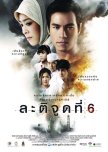

Both films take on about history and relatioship of Thai Buddhists and Muslims in the country. If you are interested at explore about this religious conflict, they would be interesting choices.

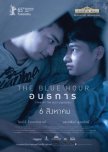
Both supernatural LGBTQ+ stories told by the same crew (director, screenwriter, cinematographer...). Both are films beautifully shot which tells spiritual storylines.
























